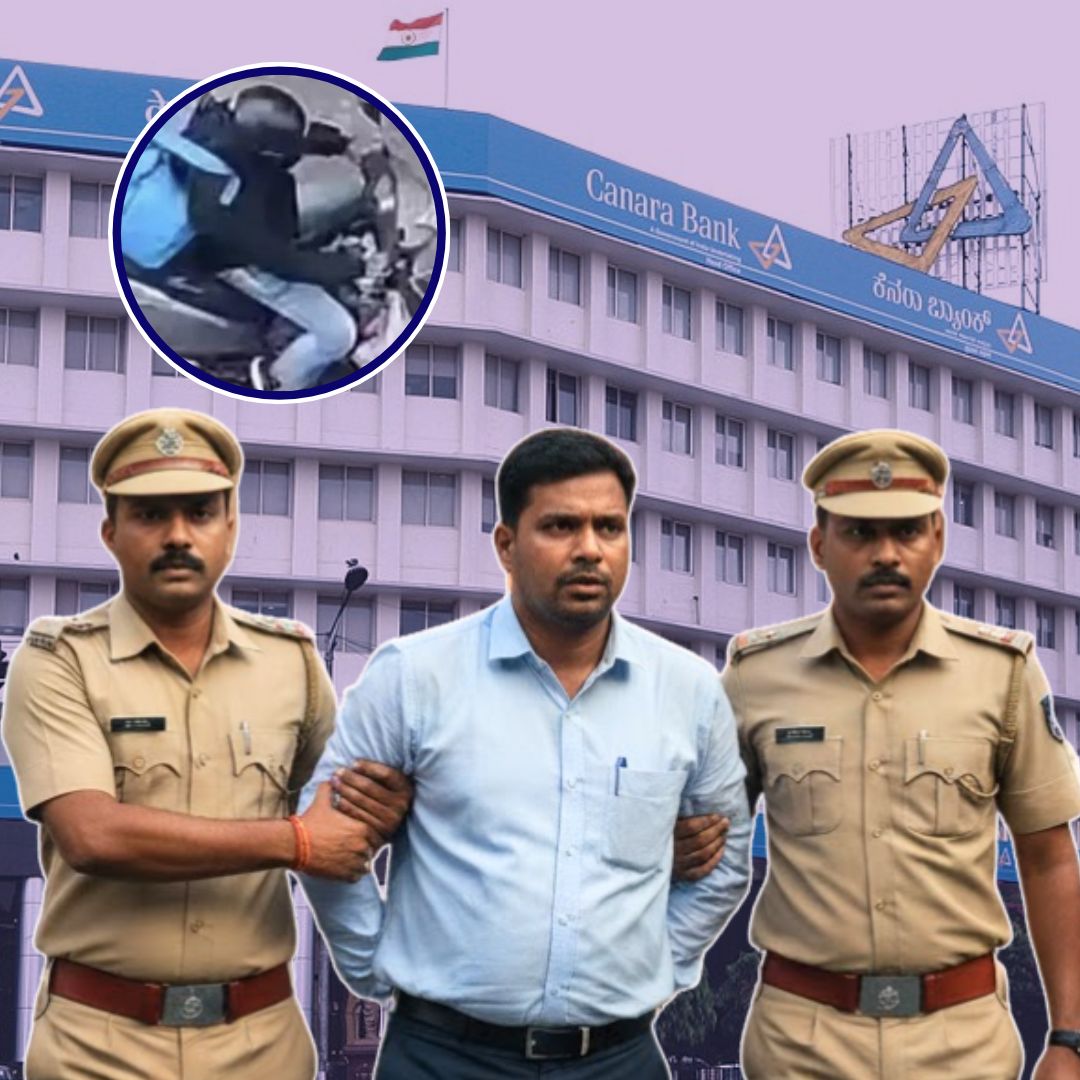Mayur Nepale, a 32-year-old assistant manager at Canara Bank’s Chikhla branch in Bhandara, Maharashtra, pulled off a meticulously planned Rs 1.58 crore robbery from his own branch to repay mounting debts incurred from online gambling and loans.
The heist was disguised as an external burglary, but Nepale was caught within 24 hours after a CCTV camera captured his arrival on a distinctive scooter, TOI reported. Police recovered over Rs 96 lakh, vehicles, and other stolen property from his residence.
The case exposed serious security lapses in bank protocols and highlights the pressures leading to insider crimes.
How a Banker Became a Burglar
Nepale’s plan was far from impulsive. Inspired by a high-profile Rs 58 crore gold heist in Karnataka earlier this year, he studied online tutorials on bypassing security systems and executing thefts without leaving evidence.
On the night of November 17, Nepale bought four bags in Nagpur, which he later used to carry stolen cash. Early next morning, he cut power lines and disabled the bank’s internal CCTV cameras using duplicate keys to enter the strongroom. Wearing a monkey cap and taking measures to erase fingerprints and mask body odour, he broke the outer gates to simulate forced entry.
He emptied cash chests and removed digital recording devices to destroy evidence, exploiting his insider access as assistant manager.
The Mistake That Led to His Arrest
Despite disabling internal cameras, Nepale overlooked an external CCTV camera in a nearby location that recorded his scooter’s arrival and his face. His behaviour also raised suspicion, taking sudden leave citing “training” in Nagpur the previous day and then returning on the same scooter, supposedly to assist with the investigation.
Investigators quickly matched his vehicle in footage, intensifying their probe. Police teams raided his home and seized cash worth Rs 96.12 lakh, a Tata Nexon car, his Jupiter scooter, and other stolen assets valued at Rs 1.07 crore in total. Nepale confessed to the crime and has been charged with theft, criminal breach of trust, and destruction of evidence.
Authorities flagged serious procedural lapses and urged the RBI to mandate cloud backup for CCTV footage to prevent evidence tampering in future cases.
Debt, Addiction, and the Breaking Point
Nepale’s financial troubles ran deep, with debts over Rs 80 lakh that included Rs 30 lakh lost in online betting, loans from private lenders, personal, car, educational, and digital wallet loans.
Despite clearing banking exams and even preparing for the UPSC exams, he was trapped in a cycle of gambling addiction and debt. Police suspect Nepale’s involvement in earlier financial irregularities, including misappropriating his father’s Rs 80 lakh fixed deposit.
This incident reveals how unchecked personal crises among trusted employees can lead to devastating breaches of trust in public financial institutions.
The Logical Indian’s Perspective
This startling case highlights the critical need for a two-fold approach: robust, foolproof bank security systems and proactive employee welfare mechanisms to support mental health and financial literacy.
While Nepale must be held accountable for his actions, the human cost behind such insider crimes demands empathy and preventive outreach. The Logical Indian urges financial institutions to strengthen transparency, employee support, and technology safeguards to protect both public funds and workers vulnerable to pressure.











